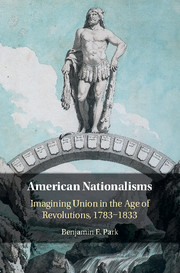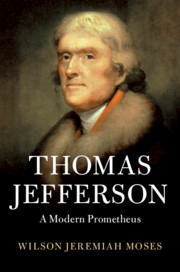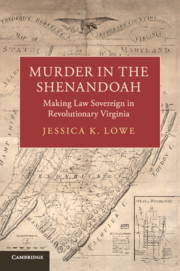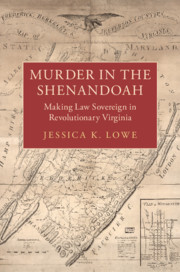American Nationalisms
America was born in an age of political revolution throughout the Atlantic world, a period when the very definition of 'nation' was transforming. Benjamin E. Park traces how Americans imagined novel forms of nationality during the country's first five decades within the context of European discussions taking place at the same time. Focusing on three case studies - Massachusetts, Pennsylvania, and South Carolina - Park examines the developing practices of nationalism in three specific contexts. He argues for a more elastic connection between nationalism and the nation-state by demonstrating that ideas concerning political and cultural allegiance to a federal body developed in different ways and at different rates throughout the nation. American Nationalisms explores how ideas of nationality permeated political disputes, religious revivals, patriotic festivals, slavery debates, and even literature.
- Proposes a new way for understanding how nationalism was understood in early America, showing how ideas of 'nation' and 'union' evolved in different ways and at different rates throughout different American states
- Demonstrates that regional divergences were in existence from the founding period, engaging three different states during America's first fifty years
- Demonstrates how ideas concerning nationalism were expressed in politics, religion, patriotic rituals, anti-slavery activism, and fiction
Reviews & endorsements
'Benjamin E. Park is in the vanguard of a new generation of intellectual historians who are transforming our understanding of the consequences of the American Revolution. American Nationalisms interrogates the origins of American national identity. With penetrating insight and graceful prose Park shows how Americans struggled to forge a common identity in the aftermath of independence. This is a landmark study.' Frank Cogliano, University of Edinburgh
'What happened when Americans celebrated their nation only to discover that their understandings of the nation diverged from region to region? Could the young United States really build one nation out of many parts, as 'E pluribus unum' suggested? In this engrossing and vital book, Park deftly illuminates how the ambiguities of revolutionary-era nationalism helped pave the road to civil war.' Caitlin Fitz, Northwestern University, Illinois
'In an era of disunity, Park has crafted a book about the politics of oneness - the imagining of unity and nationhood - in the nascent days of the republic. This is a cogent and timely volume about how Americans define who belongs, and about how the very idea of belonging creates a nation.' Adam Jortner, Auburn University, Alabama
'Turning the American federal union into a nation was no easy task. Benjamin E. Park's American Nationalisms reveals the hard work that had to be done to imagine the United States of America into existence. Well researched, clearly written, and with deep insight, this book is an exciting and much-needed contribution to the scholarship on the Early American Republic.' Annette Gordon-Reed, Harvard Law School, Massachusetts
'Great strides were made toward forging a new nation of united states, but regional perspectives also remained strong. Park uses three states (Massachusetts, Pennsylvania, and South Carolina) to show the ways in which provincialism persisted in the early national era. Recommended for graduate students, faculty, and professionals.' E. Eslinger, Choice
Product details
March 2018Hardback
9781108420372
262 pages
235 × 159 × 18 mm
0.5kg
8 b/w illus.
Available
Table of Contents
- Introduction
- Part I. Imagining Union:
- 1. Imagining nationalism in an age of statehood
- 2. Local preachers, Thanksgiving sermons, and New England's national covenant
- Part II. Imagining Disunion:
- 3. (Re)constructing state, nation, and empire in the Second War with Great Britain
- 4. Liberty, slavery, and the rise of sectionalism
- 5. The nullification crisis and the fracturing of national interests
- Epilogue: the boundaries of America's nationalist imagination.





